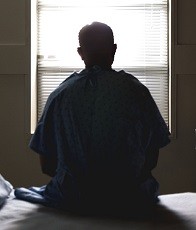Reproduced with permission
Jonathon Imbody
CMDA Senior Vice President for Bioethics and Public Policy Dr. Jeff Barrows and I recently wrote a piece for The Public Discourse, “Is Receiving the Pfizer-BioNTech COVID-19 Vaccine Ethical?” that suggested principles to consider as we navigate ethical issues related to COVID-19 vaccines. I’ve included brief highlights below; more from the original article and also new observations will be published in an upcoming edition of CMDA Today (previously known as Today’s Christian Doctor).
CMDA has approved an ethics statement that can help guide individuals’ analyses of immunizations and the potential for moral complicity with evil:
- “Using technology developed from tissue of an intentionally aborted fetus, but without continuing the cell line from that fetus, may be morally acceptable.
- “Continued use of a cell line developed from an intentionally aborted fetus poses moral questions and must be decided as a matter of conscience, weighing the clear moral obligation to protect the health of our families and society against the risk of complicity with evil.
- “Using a vaccine that requires the continued destruction of human life is morally unacceptable.”
Deciding which COVID-19 vaccine poses the least ethical concerns hinges in part on the implication of abortion in (a) the initial design of the vaccine, (b) the confirmatory testing of the vaccine and (c) the ongoing production of the vaccine. Vaccines that continue to use the abortion-derived cell line in ongoing production pose the most obvious ethical barrier to use by pro-life individuals. This category includes vaccines by AstraZeneca–University of Oxford and by Janssen–Johnson & Johnson. In fact, these vaccines employ abortion-related cell lines in all three stages—design, confirmation and production.
While still ethically concerning, the fact that this remote and limited interaction with abortion does not involve the continuing use of an aborted fetal cell line makes it less ethically problematic compared to its competitors that use these cell lines for ongoing vaccine production.
Unlike the aforementioned COVID-19 vaccine candidates that rely on abortion-derived cells for their ongoing production, the Pfizer-BioNTech vaccine used the HEK-293 cell line from a 1972 abortion only to confirm that messenger RNA was properly coding for the spike protein of the SARS-CoV-2 virus. While still ethically disconcerting, the fact that this remote and limited interaction with abortion does not involve the continuing use of an aborted fetal cell line makes it less ethically problematic compared to its competitors than use these cell lines for ongoing vaccine production.
A consideration of the harm to others that can come without vaccination goes to the heart of Christian ethics in a way that virtually every believer understands: Vaccinating yourself and those who depend on you is an important component of following the command to love thy neighbor.
We recognize that each individual must weigh ethical considerations before making a vaccine decision. When we examine the Pfizer-BioNTech vaccine in light of ethical principles of (a) loving our neighbor by protecting them through our own vaccination, (b) the distance in time from an abortion connection and (c) the fact that the vaccine does not continue to use cell lines derived from an abortion, we find these factors considerable in mitigating the ethical concerns and opening the door to receiving the vaccine in good conscience.
